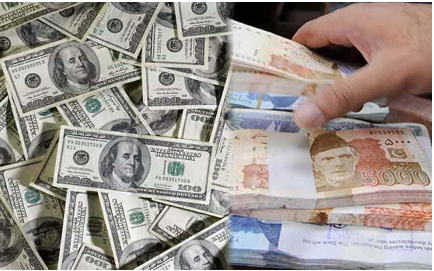INP-WealthPk
Arooj Zulfiqar
Rupee

stability is critical for sustaining robust remittance inflows, which serve as a vital economic lifeline for Pakistan amid fluctuating global markets,” reports WealthPK. As Pakistan's economy battles various external and internal pressures, workers’ remittances continue to play a vital role in supporting the foreign exchange reserves. With nearly $3 billion in remittances flowing into Pakistan in August 2024 alone, experts are increasingly emphasizing the importance of maintaining rupee stability to ensure this crucial source of income remains robust in future. In August 2024, remittance inflows reached $2.94 billion, marking an increase from $2.09 billion in August 2023, as per data released by the State Bank of Pakistan (SBP). However, there was a slight decrease in inflows compared to the $2.99 billion recorded in July 2024. Overall, remittances surged 44% to $5.94 billion in the initial two months (July-August) of the fiscal year 2024-25, in contrast to the corresponding period in the previous year.
The average monthly inflow of nearly $3 billion during the first two months of FY25 is notably better than the full-year average of $2.68 billion per month in FY24, suggesting that the growth momentum could be sustainable moving forward. “Attracting foreign remittances is crucial for Pakistan's economy, as it helps bolster foreign exchange reserves, reduces balance of payment deficits, and contributes to overall economic stability,” said Dr. Sajid Amin. eminent economist and Deputy Executive Director at the Sustainable Development Policy Institute (SDPI), while talking to WealthPK. However, he warned that this growth could stall if the government failed to maintain stability in the exchange rate. The rupee-dollar parity, long a barometer of economic sentiment, plays a decisive role in the remittance inflow mechanism. “For Pakistan, maintaining a steady rupee is not just about preventing inflation or stabilizing imports but also about keeping remittances flowing into the formal financial system.
Any significant volatility in the rupee could lead to a decline in remittance inflows through official channels, as overseas workers may prefer informal methods that offer better rates. “When the rupee remains stable, non-resident Pakistanis are encouraged to send their money through official banking channels, as they can benefit from transparent exchange rates and improved profitability. To strengthen remittance inflows, implementing innovative measures, including digital solutions that make money transfers easier and more secure, are necessary. “Increased profit margins for banks and authorized exchange companies have further incentivized remittances through official channels, particularly for smaller amounts sent by the daily wage workers in the Middle East and other regions. These policies align with the government’s broader strategy of encouraging financial inclusion and broadening access to the formal banking services for low-income expatriates.
Credit: INP-WealthPk













